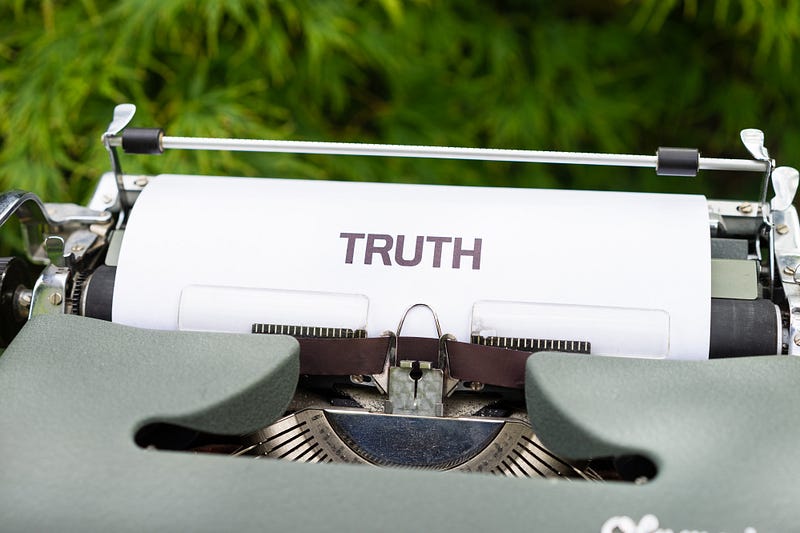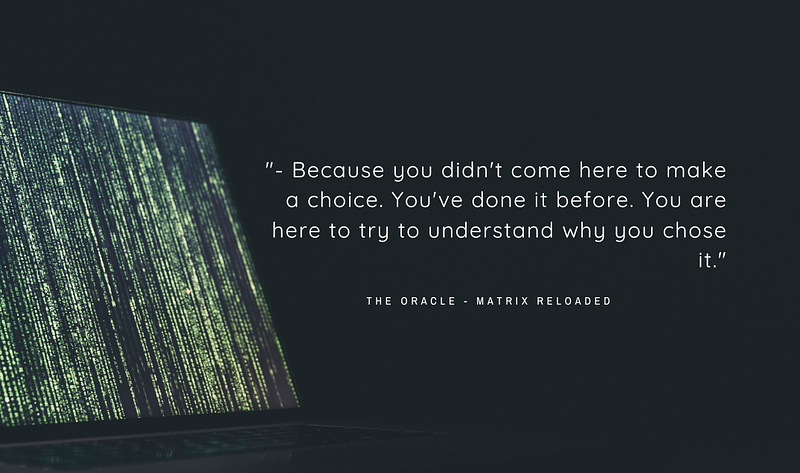Exploring the Mysteries of Tarot: How and Why It Works
Written on
Understanding Tarot's Effectiveness
Indeed, tarot possesses real potency! Each day, I test its theories as a seeker on a journey. However, there are several compelling explanations for how and why tarot functions.

Photo by Markus Winkler on Unsplash
The Dominance of the Unconscious Mind
Our brain orchestrates our lives, with the unconscious mind playing a far larger role than the conscious. Frequently, we find ourselves disconnected from the present, lost in reflections of the past or anticipations of the future.
Anyone who has engaged in meditation can relate. If you haven't tried it, take a moment to observe your thoughts. How often do they reside in the now?

Photo by Markus Spiske on Unsplash — edited by Six of Swords
Furthermore, the information we consciously register barely scratches the surface of what our brains can perceive. Much of this information remains in our unconscious for protective reasons. It's simply impractical to analyze every sensory detail in daily life.
(Imagine trying to consciously note every scent, sound, and visual detail while walking. It’s utterly unfeasible.)
Most of our decisions, which we assume are made consciously, are actually determined by our unconscious long before we recognize them. Research supports this notion: we are predominantly beings of the unconscious.
Tarot acts as a mirror, reflecting our subconscious processes and revealing the paths we are inclined to follow based on decisions made by our hidden mind. Once these choices are illuminated, we can consciously adjust them and potentially alter our future.
The Higher Self Perspective
On a more metaphysical note, another perspective posits the existence of a higher self (sometimes referred to as an angel). This aspect of ourselves has predetermined our life experiences to facilitate learning and growth into that elevated being, which transcends time.
Our existence might resemble an eternal cycle, challenging to explain to a mere mortal.
(Consider this: time is merely a human construct, an illusion designed to help us comprehend existence, yet it is intangible.)
According to this viewpoint, our destinies are preordained. This, in turn, suggests the existence of free will. By uncovering this with tarot, we can choose to embrace our fate (our true purpose) and find happiness by accepting whatever life presents.
Conversely, avoiding our true destiny leads to repeating the same challenges until we confront them. Denying our fate can result in suffering, as it impedes our personal growth.
Embracing Change or Accepting Destiny?
Tarot cards are rich in symbols and archetypes, deeply rooted in our collective unconscious and integral to human history since ancient times.
While there are various debates regarding its mechanisms, there is no question that tarot has been shaped by human experiences over the ages. Whether serving to highlight unconscious insights or facilitating communication with our higher selves, tarot readings are effective.
Importantly, tarot can indicate the trajectory of events but does not possess the ability to predict the future.
Always remember that you hold the power of free will and can alter your path. The effectiveness of this approach depends on which theory resonates with you.
The first video explores the rich history of tarot cards, shedding light on how they have evolved through time and their significance across various cultures.
The second video provides a step-by-step guide on conducting a yes/no tarot reading, offering practical tips for both beginners and seasoned practitioners.
For any inquiries or suggestions about tarot, feel free to reach out at [email protected]. We welcome your ideas for future discussions. To stay updated with fresh content, subscribe to our profile.